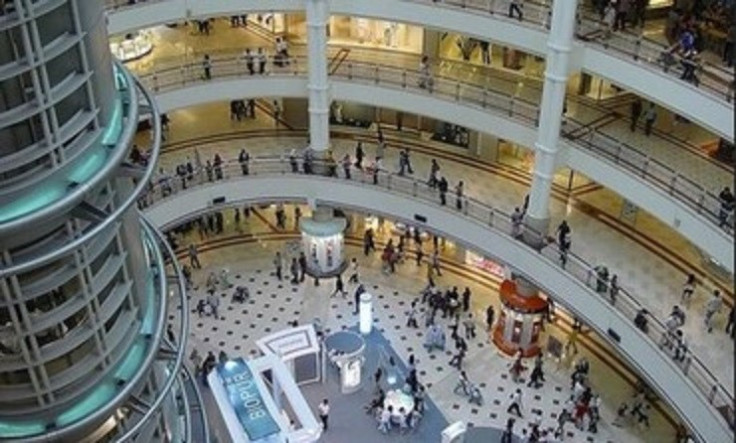Israeli Military Posts Lavish Malaysian Mall Photo to Show Gaza’s ‘High Life’
IDF says picture of Kuala Lumpur shopping mall removed after 'innocent mistake' realised

Israel's military faces embarrassment after it admitted posting a photo of a lavish Malaysian shopping mall in an online article purportedly showing the Palestinian high life in the Gaza strip.
The photo was posted on an IDF propaganda blog that sought to debunk accusations from rights groups that Israel's blockade has turned Gaza into an "open-air prison".
"This summer Gazans are out in force, enjoying themselves in beautiful beaches and hotels, and doing their shopping in pristine grocery stores and markets heaving with fresh produce. Gaza even boasts an Olympic-size swimming pool," the post read.
Photos of Palestinians playing volleyball on the beach or shopping at local markets, groceries stores and food stands were posted to substantiate the article.
"As you can see, there is no humanitarian crisis in Gaza. Many Gazans have money, food and even luxuries that much of the world goes without. What is missing, however, is a stable, democratic government." it continued.
"People say there is a humanitarian crisis in #Gaza. The hotels, beaches, malls & nightlife say otherwise. #MythBusted" the IDF tweeted, linking to the article.
However the myth that was eventually busted was that the picture, depicting the inside of a futuristic multi-storey shopping centre crowded with customers, was taken in Gaza.
Netizens soon pointed out that the mall was in fact the 1.5 million sq ft Suria KLCC shopping centre in the Malaysian capital of Kuala Lumpur.
The IDF removed the photograph from its site, but kept in place the blog post depicting life in Gaza.
"A photo previously included in this article was incorrectly sourced. It has been removed," IDF wrote.
Israel's blockade of the Hamas-controlled Gaza strip has often been condemned by the UN and rights groups.
"Israel's punitive closure of the Gaza Strip, particularly the near-total blocking of exports from Gaza, continued to have severe consequences for the civilian population," Human Rights Watch wrote in its 2013 world report. "More than 70 percent of Gaza's population receives humanitarian assistance."
Egypt also imposes restrictions on the movement of goods at the crossing it controls.
© Copyright IBTimes 2025. All rights reserved.




















